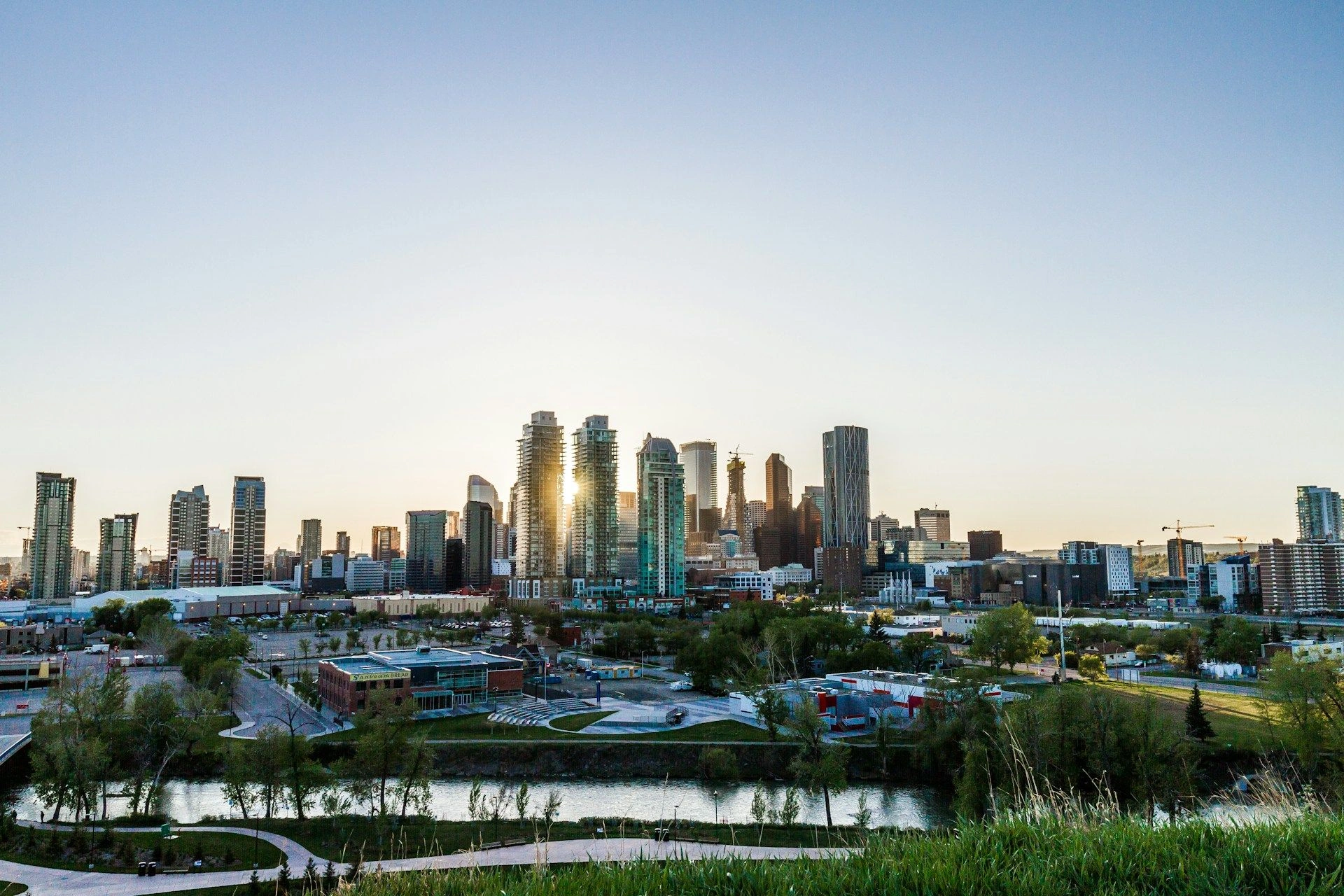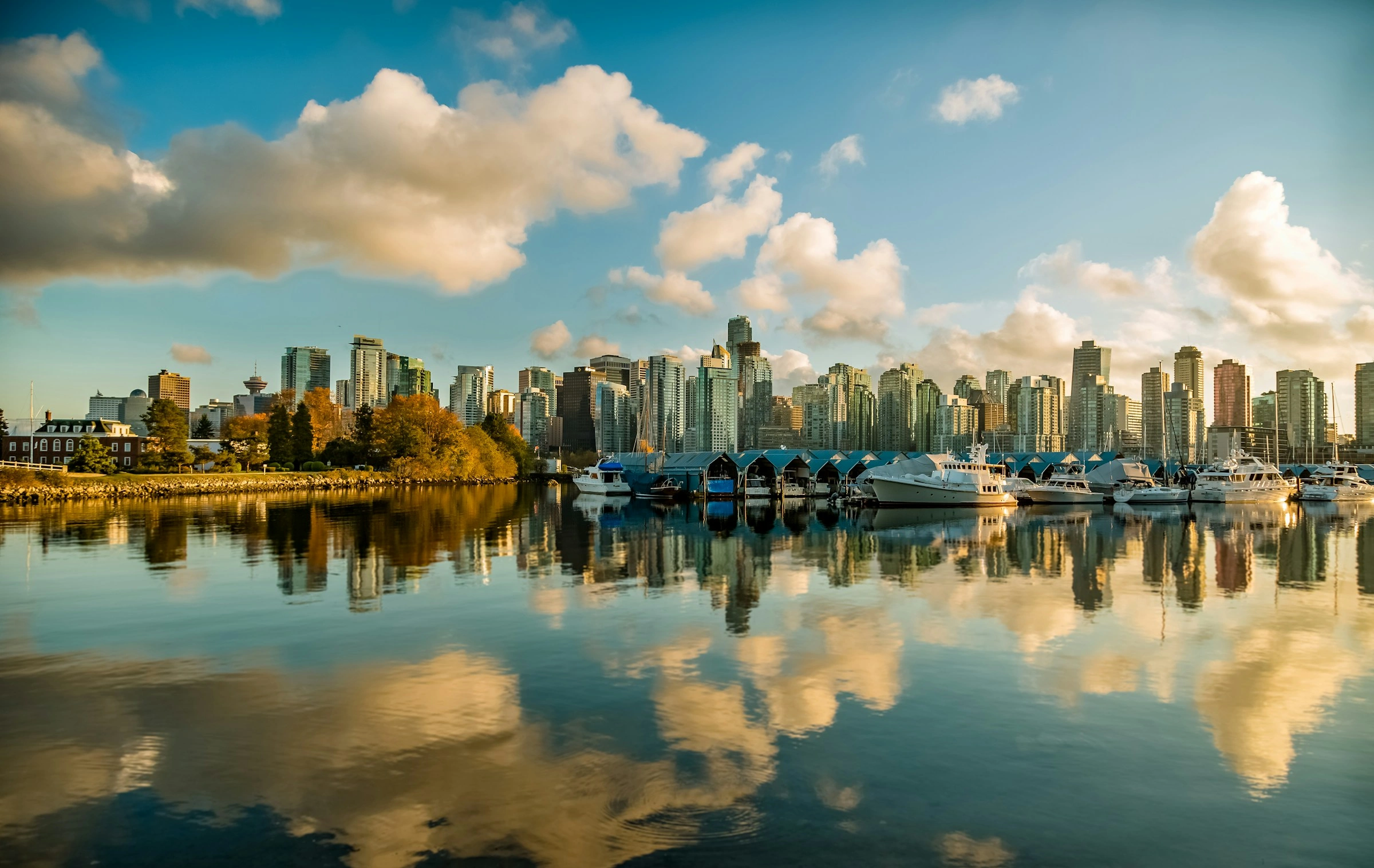Canada Investment Property ListingsModern lifestyle with outdoor andurban balance

Best offers
in Canada
Benefits of investment in
Canada real estate
Global cities with consistent growth
Toronto, Vancouver, and Montreal remain investment magnets with solid capital appreciation.
Strong legal and financial ecosystem
Canada offers full ownership, financing tools, and secure title registration.
High rental demand from newcomers and professionals
Immigration, student inflows, and economic stability create resilient tenant demand.
Global cities with consistent growth
Toronto, Vancouver, and Montreal remain investment magnets with solid capital appreciation.
Strong legal and financial ecosystem
Canada offers full ownership, financing tools, and secure title registration.
High rental demand from newcomers and professionals
Immigration, student inflows, and economic stability create resilient tenant demand.

Useful articles
and recommendations from experts
Real Estate in Canada: Investing in a Resilient and Diverse Market
Why Invest in Property in Canada
Canada is known for its political stability, high standard of living, and globally respected education and healthcare systems. With a strong, diversified economy and transparent legal environment, the Canadian real estate market continues to attract local and international investors alike. While recent federal regulations have temporarily restricted certain foreign buyers, Canada remains a long-term investment destination due to its urbanization trends, growing immigrant population, and strong demand for rental housing across major cities like Toronto, Vancouver, and Montreal.
Types of Real Estate and Permitted Uses
Canada offers a wide range of real estate opportunities for residential, commercial, and land use:
- Condos and Apartments: Found predominantly in city centers such as Toronto, Vancouver, and Montreal. Suitable for rental income or urban living.
- Detached and Semi-Detached Houses: Common in suburban neighborhoods. Ideal for families or long-term value retention.
- Townhouses: A middle ground between condos and single-family homes, offering low maintenance with more space.
- Land Plots: Residential and rural plots are available for custom builds or long-term development.
- Commercial Real Estate: Office buildings, retail units, and industrial parks attract business investors and REITs.
Legal Framework and Foreign Ownership
Canada generally welcomes foreign investment, but recent regulations affect property ownership in certain segments:
- Ban on Foreign Residential Purchases: From January 2023 to January 2025, non-resident foreigners are temporarily prohibited from buying residential property in many areas, subject to exemptions (e.g., students, workers, refugees, and certain types of property).
- Commercial Property: Not subject to foreign ownership restrictions. Open to international buyers and corporations.
- Land Ownership: Foreigners may still buy land or rural property in many provinces, but local rules vary.
- Ownership Structures: Property can be held in personal names, corporations, or trusts. Legal assistance is highly recommended for structuring.
- Notary and Lawyer: Real estate transactions require professional representation for due diligence, title registration, and financing.
Property Prices and Market Trends
Canadian real estate prices vary significantly by region. Urban centers are expensive, while smaller towns and rural provinces offer more affordable entry points. As of 2024:
| City | Average Condo Price | Average Detached Home Price |
|---|---|---|
| Toronto | CAD 700,000 – 950,000 | CAD 1.3M – 2.5M |
| Vancouver | CAD 750,000 – 1M+ | CAD 1.5M – 3M+ |
| Montreal | CAD 400,000 – 650,000 | CAD 800,000 – 1.2M |
| Calgary | CAD 300,000 – 500,000 | CAD 600,000 – 900,000 |
| Halifax | CAD 300,000 – 450,000 | CAD 500,000 – 700,000 |
While interest rate hikes have cooled some markets, housing shortages and immigration continue to drive long-term demand.
Rental Yields and Investment Returns
Rental markets in Canadian cities are robust, especially in areas with university populations and immigrant communities. Average gross rental yields:
- Toronto: 3%–5% depending on location and unit type.
- Vancouver: 3%–4% due to high property prices.
- Montreal: 4%–6%, with affordable entry prices and strong rental demand.
- Calgary and Edmonton: 5%–7%, appealing for yield-focused investors.
- Student Housing: Strong returns near campuses (e.g., McGill, UBC, University of Toronto).
Short-term rentals (e.g., Airbnb) are regulated in most provinces and may require licensing or primary residence status.
Top Locations for Property Investment
Different cities and provinces offer unique real estate opportunities:
- Ontario: Toronto and Ottawa remain high-demand zones with long-term appreciation.
- British Columbia: Vancouver and Victoria offer premium real estate, but come with foreign buyer taxes and high entry costs.
- Quebec: Montreal combines affordability with growth and attracts European investors due to French culture and lower price points.
- Alberta: Calgary and Edmonton are emerging as high-yield cities with lower prices and business-friendly policies.
- Atlantic Canada: Halifax and St. John’s appeal to those seeking affordable property, rental income, and lifestyle investment.
Taxes and Purchase Costs
Property buyers in Canada should account for several taxes and transaction fees:
- Land Transfer Tax (LTT): Applied in most provinces. Ontario and BC have progressive LTT based on purchase price.
- Non-Resident Speculation Tax (NRST): In Ontario and BC, foreign buyers pay an additional 20%–25% on certain property purchases.
- Legal Fees: CAD 1,000–2,500 for conveyancing and title registration.
- Property Taxes: Annual tax levied by municipalities, typically 0.5%–2% of assessed value.
- Capital Gains Tax: Payable on sale of investment property. 50% of the gain is taxable as income.
- Rental Income Tax: Non-residents are taxed on Canadian rental income (usually 25% withholding, or elective net income filing).
Residency, Visas, and Real Estate Ownership
Owning property in Canada does not grant residency. However, several visa options exist:
- Temporary Resident Visa (TRV): For short visits, including property viewing or seasonal stays.
- Work Permits and Study Permits: Holders may rent or own property while residing in Canada.
- Express Entry / PR Pathways: Real estate ownership is not a qualifying factor but may demonstrate ties to Canada.
- Startup Visa Program: For entrepreneurs; real estate business models may qualify if linked to innovation and job creation.
Permanent residents and citizens enjoy full rights to own, lease, or develop property without restriction.
Infrastructure and Quality of Life
Canada boasts world-class infrastructure and urban planning:
- Transport: Extensive public transit in major cities. Intercity trains and highways connect urban zones.
- Healthcare: Universal healthcare access for residents. Private care is available for non-residents and short stays.
- Education: Public schools and top universities (e.g., University of Toronto, McGill, UBC).
- Utilities and Internet: Reliable across most regions. Rural areas may have limited broadband access but are improving.
- Safety: Canada consistently ranks high on global safety and quality of life indexes.
Risks and Considerations
While Canada is a stable market, investors should be aware of certain limitations:
- Foreign Buyer Restrictions: Temporary bans on residential purchases by non-residents are in effect until 2025.
- High Entry Prices: Urban centers may be cost-prohibitive for yield-focused investors.
- Provincial Variations: Rules and taxes differ widely between provinces and cities.
- Currency Fluctuations: Foreign investors should monitor CAD–USD or EUR exchange rates.
- Tenant Protections: Canada has strong tenant rights; eviction and rent increases must follow strict rules.
Conclusion: Canada’s Property Market Remains Globally Attractive
Despite recent regulatory tightening, Canada continues to offer a transparent and resilient real estate market for long-term investors. Its economic strength, strong legal framework, and high rental demand create ongoing opportunities — especially in multi-family housing, commercial assets, and secondary cities with room for appreciation. As immigration grows and housing shortages persist, demand for quality property will remain a driving force. Investors who navigate the regulatory landscape and select the right location can benefit from capital growth, income, and the lifestyle appeal that Canada reliably delivers.






